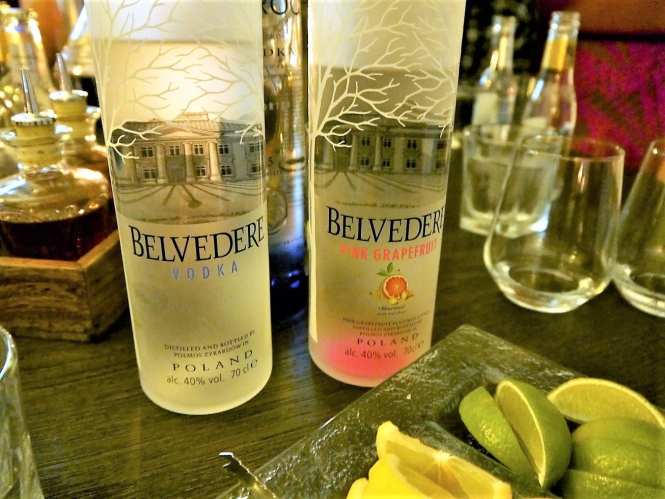
Let’s start with the gluten. Vodka is gluten-free even when it is made from wheat, barley or rye. The distillation strips away the harmful gluten proteins, causing it to become free from gluten. Therefore all spirits are suitable for hipsters and people suffering from coeliac disease. But because gluten-based ingredients have been used in making these vodkas, they are not allowed to be labelled as gluten-free, even if there is no gluten protein left in them.
In 2016 Stolichnaya released an alternative buckwheat- and corn-based vodka so they could add gluten-free to the label and this way differentiate themselves from the rest of the brands. They were the first vodka brand to become certified gluten-fee.
If you are still in doubt, there are vodkas made from grapes (Ciroc), potatoes (Arbikie) and even 100% pure cow’s milk! Black Cow Vodka is suitable for those who are dairy and lactose intolerant as the whey is fermented into a beer using yeast that converts the milk sugar into alcohol. The milk beer is distilled and treated with a specific blending process. The outcome is smooth and slightly creamy.


How about the filtration? It is up to the distiller to decide on the filtration of the spirit. The point of filtration is to remove unwanted impurities and this way produce a pure and clean spirit. It can also ensure a longer shelf life. (Who needs a long storage life? In my house, vodka doesn’t stay in the bottle for too long!?). But distillation will already do most of this, therefore filtration after distillation is not necessary.
So, when a brand says their vodka is three times distilled and twice filtered it doesn’t mean the product is any better than a vodka which is only three times distilled but not filtered. In fact, if the spirit is treated too many times it will take a lot of the real character away and the final spirit may be bland and flavourless. Which brings me to another point… sometimes several distillations and filtrations can be used to disguise low-quality base ingredients by stripping out all the bad flavours!
All ingredients react differently to the process. Rye, for example, has a strong flavour, and to get the optimum, subtler, flavour it needs to be distilled several times. Reyka vodka, on the other hand, is only distilled once and it is not filtered afterwards, yet it tastes amazing! The water used to make Reyka comes from a spring which runs through lava rocks. The lava rocks work as a natural filtration system, therefore no more than one distillation is needed to guarantee the best flavour. I definitely recommend you try Reyka! Another vodka has a similar process – Grey Goose use water which runs through limestone and the spirit is also distilled only once. These are both great proofs that extra filtration doesn’t mean quality.


Overall, it is up to you, the consumer, to find the products you like, and you can choose whether you believe everything you read on the label! Go and experiment with different brands and taste the difference! If you want to learn more about the process of making vodka, see the Technical Stuff section on the blog.
Do you have a favourite vodka? Does the number of distillations and filtrations influence your choice when picking up a vodka brand?





3 Comments
All vodka has to start life at 96%abv so it has been distilled over 40 times not just once as stated in story and you charcoal filter
I guess you could say that if continuous distillation is used, but charcoal filtering is not always used. For example, Sipsmith distil their vodka in copper and do not use filtering.
Vodka has to be distilled over 95/96% ABV. Therefor every vodka is distilled in tall columns. But usually most of the vodka brands aren’t distilling their own vodka – mostly they’re buying neutral spirit, dilute it with water and bottle it. Some redistill the neutral spirit and claim that they distill their own vodka – but it’s just redistilled from neutral spirit. Just a few brands are making their own spirit, from raw material, mashing and distilling – from field to bottle. Like VESTAL Vodka, FREIMUT Wodka or XELLENT Vodka.